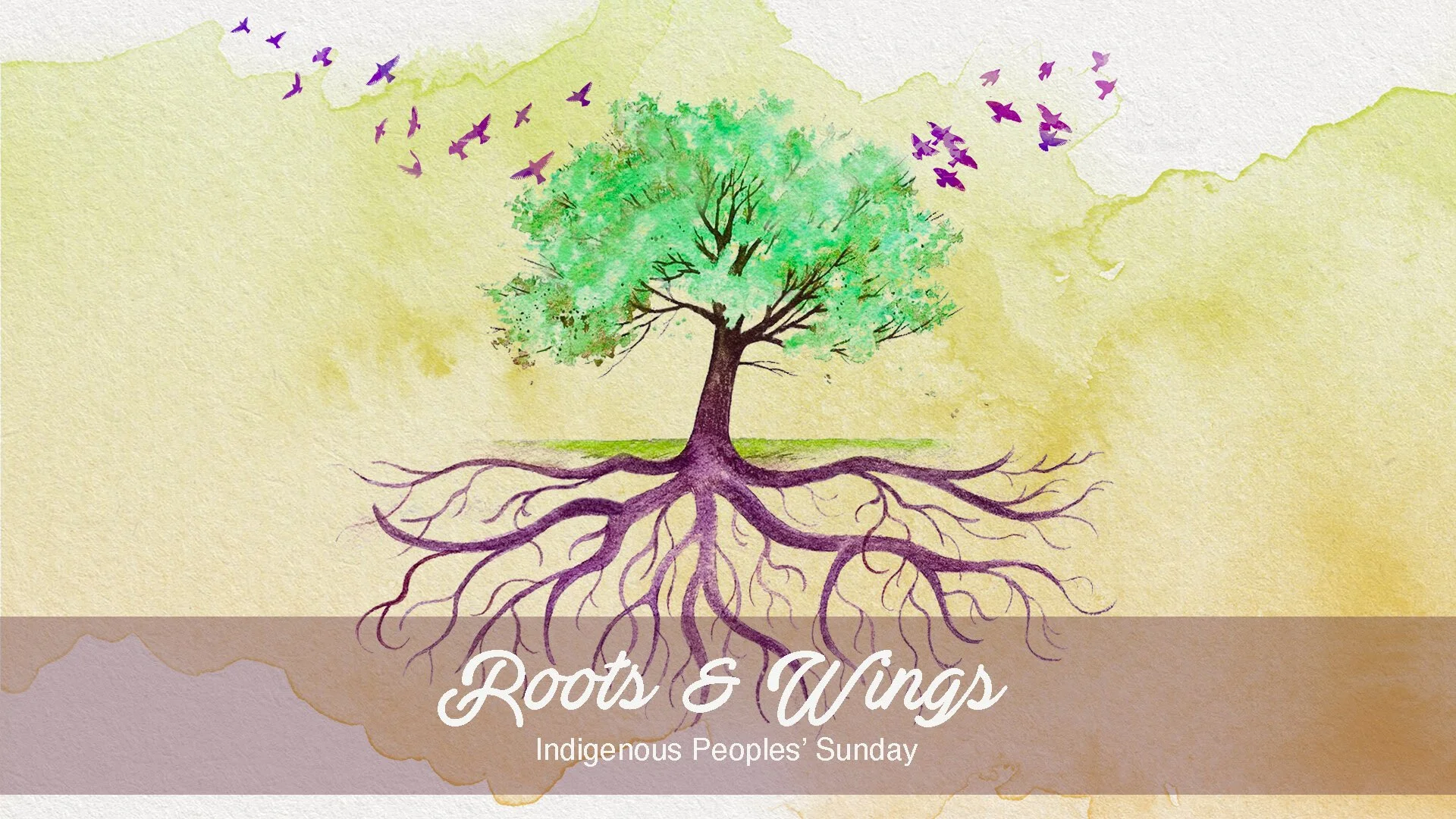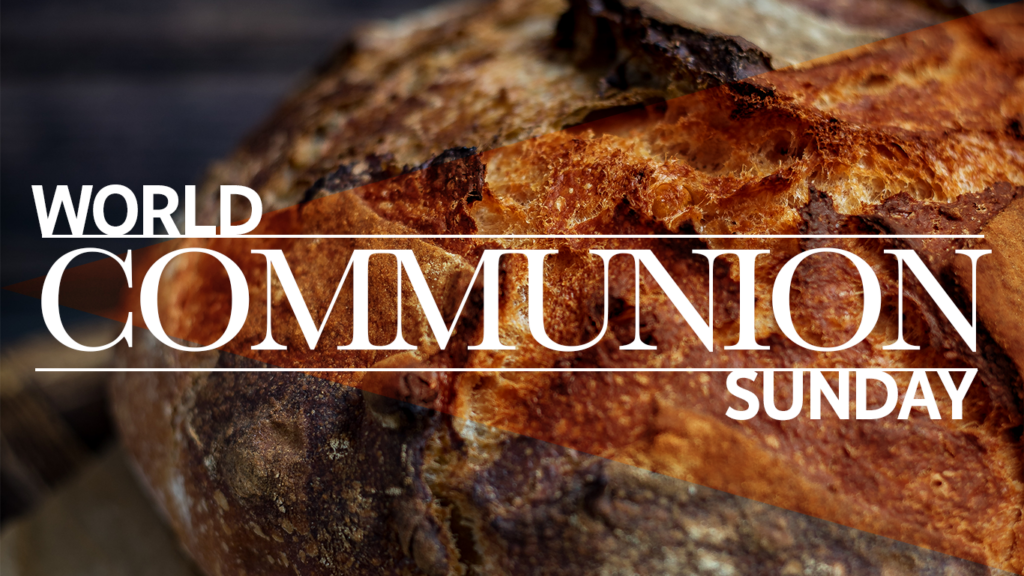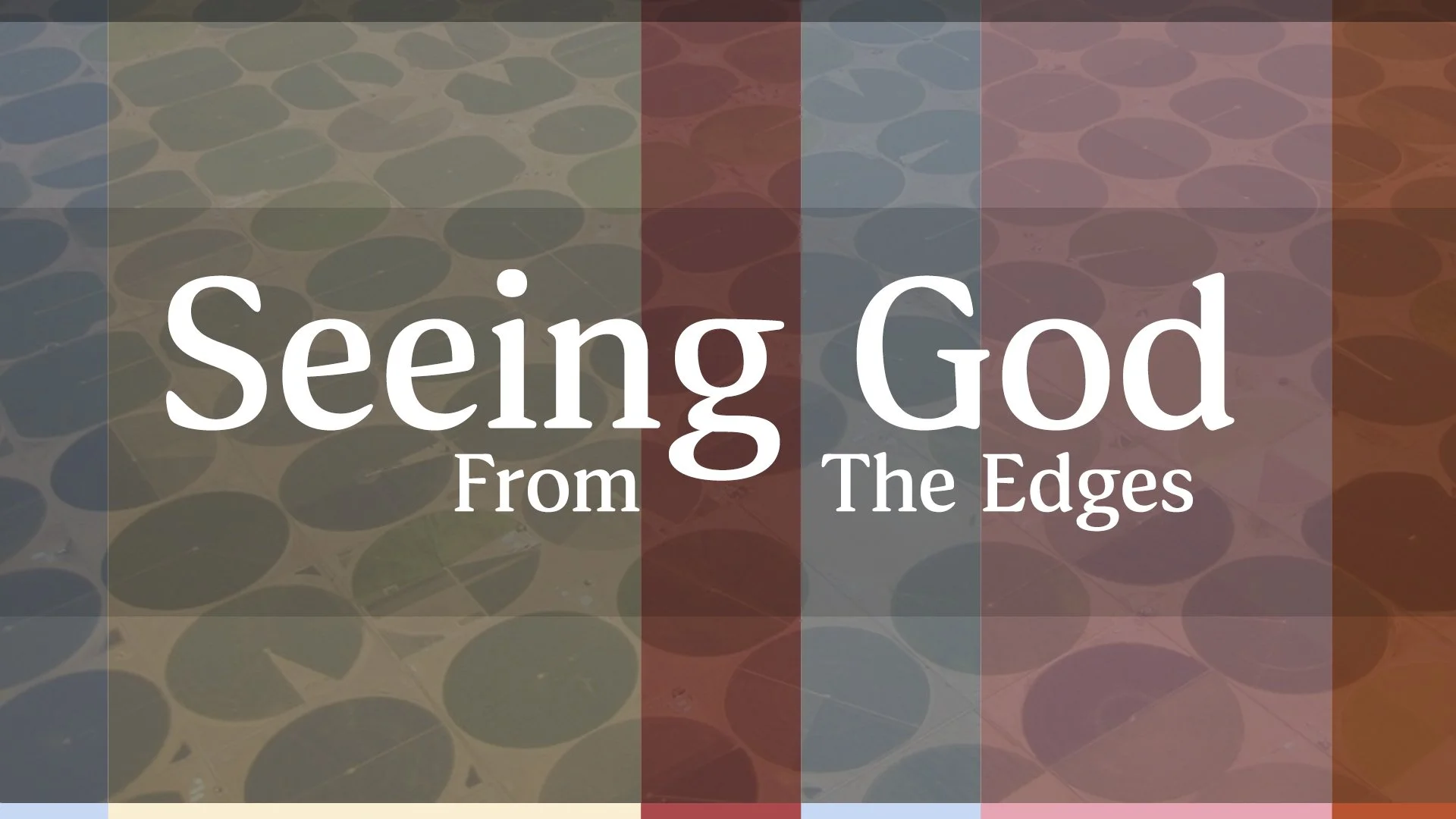It Takes Both Hands
In "Fiddler On The Roof" Tevye considers traditions and new ways proposed by his daughters, as they are supported by his wife, he consults with one constant in his life: God. These conversations are the basis of his decision making, the outlet for his angry tantrums, and a balm for his suffering. Through these conversations, Tevye the milkman shares thoughts of love, wealth, justice, friendship, suffering, and, of course, tradition. Come with us, as we travel back to 1905, to Anatevka, and as we listen to Tevye’s prayers and wait for God’s response.
World Communion Sunday
World Communion Sunday is a Sunday set aside for Christians throughout the world to celebrate the gift of communion in spiritual unity. And yet, what does it mean to live into the truly global nature of our faith? Are we called to spread a message that only we control? Are we called to simply sing Kumbaya? Or is it something else entirely? Let’s gather around the Lord’s Table this World Communion Sunday and consider how God is leading us to live in this global movement.
World Communion Sunday is a Sunday set aside for Christians throughout the world to celebrate the gift of communion in spiritual unity. And yet, what does it mean to live into the truly global nature of our faith? Are we called to spread a message that only we control? Are we called to simply sing Kumbaya? Or is it something else entirely? Let’s gather around the Lord’s Table this World Communion Sunday and consider how God is leading us to live in this global movement.
Liberation Theology w/ Special Guest Dr. Hugo Magallanes
From pastoring migrants in rural Georgia to teaching practical theology at SMU, Rev. Dr. Hugo Magallanes is not someone you could call “ivory tower.” In fact, his experience leads him to bring the seminarian into the harvest field to feel the heat of the sun and pain of the poor. This Sunday, we invite Dr. Magallanes to the AUMC pulpit as guest preacher, to share with us a message of liberating theology.
“All Means All” is not the finish line
As United Methodists, we are proudly people of an “open table,” meaning that all people are welcome to the sacrament of communion. At AUMC, we have extended the table to specifically include our LGBTQ siblings as an “open and affirming” congregation, but is that the finish line? (Hint: not exactly.) This week, Pastor Scott is joined by Pastor Britt Melrose in a conversational sermon about opening ourselves to the beauty of God expressed through the lives of LGBTQ persons.
Stories of Constructive Theology
“Deconstruction” is a buzz word for some, a dirty word for others, and simply a reality for many people here at AUMC. The word speaks to the season of “taking apart” one’s faith, and at AUMC, we include the word “reconstruction” as the natural next step. This is not a one-size-fits-all process; in fact, as we will learn this week, every journey is unique and sacred in its own way. This week, Pastor Cathy will weave various stories from AUMC members who know what it’s like to walk the “constructive” path, wherever that may lead them.
Seeing God from the Edges
It’s one thing to believe in God’s love for all people. But when we see God through the eyes of those whom we are not like, especially people beyond the scope of social norms, we begin to see God with more complexity and clarity at the same time. This Fall, journey with us as we uplift diverse voices and perspectives in an effort to better know God through the lived experience of God’s people.
Does Jesus Want Me to Fight My Grandma?
With the Fall season around the corner, that can mean gatherings with family and loved ones who… we don’t always see eye to eye with. In the Gospel of Matthew, Jesus actually shares some pretty provocative teaching about what his message could mean for those who follow him, and how it could redefine our relationships. Are we doomed to fight with our crazy aunt or uncle, or is there something more hopeful to be heard? Let’s talk this Sunday!
The 12 Steps and the Gift Of Letting Go
The 12 Steps invite us to take an actual honest look at how we perform our own lives. By organizing our steps to face actual addictions, we come to understand that our lives as we operate them become unmanageable. In step 2-3 we are invited to release our source so that God can be a resource. This is vulnerable. This is a challenge. The challenge is an invitation. An invitation to let go and wait on God.
When We Wrestle with God
Jacob is on his way to a face-to-face conflict that has been building his entire life, but before he arrives, he encounters a divine presence and wrestles his way through the night. Have you ever found yourself wrestling with God or with your faith in the midst of a uniquely challenging situation? You’re not alone. This Sunday, let’s talk about how we wrestle with God and why it’s a good thing.
How to Pick a Fight (According to Jesus)
He was hailed as the Prince of Peace, but Jesus understood the realities of conflict in everyday life. As he brought people into relationship with one another, and sought to bring reconciliation to all of God’s people, Jesus offered guidance on how we should handle the unavoidable conflict we would encounter in the life of faith. This week, let’s talk about why conflict might actually be a good (even great?) thing, and how our faith can be a guide.
God’s Grace Means Anything Goes?
What happens when a theology of grace actually becomes harmful? That’s precisely the concern that Jude was trying to address when he wrote his little letter, calling out the Christian leaders who used “grace” as an excuse for bad behavior. This week, let’s take a look at a small-yet-punchy note from Jude, a leader who is committed not only to God’s grace, but also how God’s grace can be good news for truly everyone.
Jesus’ Little Brother Has Something to Say
It can be hard when people compare you to an older sibling. But imagine if that older sibling was… Jesus. His younger brother, James, was a key leader in the Christian movement in Jerusalem, and as he came to the end of his life, he wrote a letter where he tried to sum up his theology through a series of pithy vignettes. This week, let’s take a look at the little letter of James, and give Jesus’ younger brother his due.
Culture Wars, Cults, and Cretans
The island of Crete was renowned in the first century as a place of liars, jerks, and the very worst that the world had to offer… it was also home to a growing number of Christian house churches. The Apostle Paul hears about the struggles that early Christians faced there, specifically in how they related to the surrounding culture. This week, let’s talk about how the questions facing Christians in Crete aren’t all too different than the ones we face in a modern cultural context.
Simply, Love.
The short letters of John (the elder) were written at a time when the early church, probably in Ephesus, was splintering. A movement was departing from the community’s traditional beliefs about Jesus. Early Christians didn’t know how to address these disagreements, but John, author of the letters, knew the most important thing: love. When our world is dividing, can it really be that simple? Love? This week, let’s find out how these letters offer not just words of love, but also advice on what love looks like when we are responding to attacks on our character. How do we love someone who seems to hate us?
When Dreaming is Love on the Run
This week we trade rainbow technicolor dreamcoats for someone we normally only talk about near Christmas. That’s right, it’s time for the other Joseph (of nativity fame) to shine! God visits him in a series of dreams, and while it is ultimately really big, really GOOD news, it’s also fear-inducing, life-changing, and pushes Joseph to places he never imagined he would go. Where might his dreams lead us?
Joseph is kind of a jerk, and that’s kind of the point.
Whether or not you’ve read the story, you’re likely familiar with it. A favorite son. A “many-colored” robe. Jealous brothers. Donny Osmond. (Okay, Donny isn’t in the Scripture.) The story of Joseph and his “technicolor” coat famous, to be sure, but when we dig deeper into the story of this dreamer, we find a complicated tale of hubris, humility, and family infighting that might change the way we approach the God-sized dreams in our life.
Coming Out and Coming Home
He’s on the run from a brother he believes is keen to kill him. In a dream, Jacob is visited by God with a simple message: go home. That simple message would lead Jacob to unexpected places and people, and it would change life for generations to come. As we step into June, we center ourselves on Dreamers, and wonder how God might be leading us to dream once again today.



















